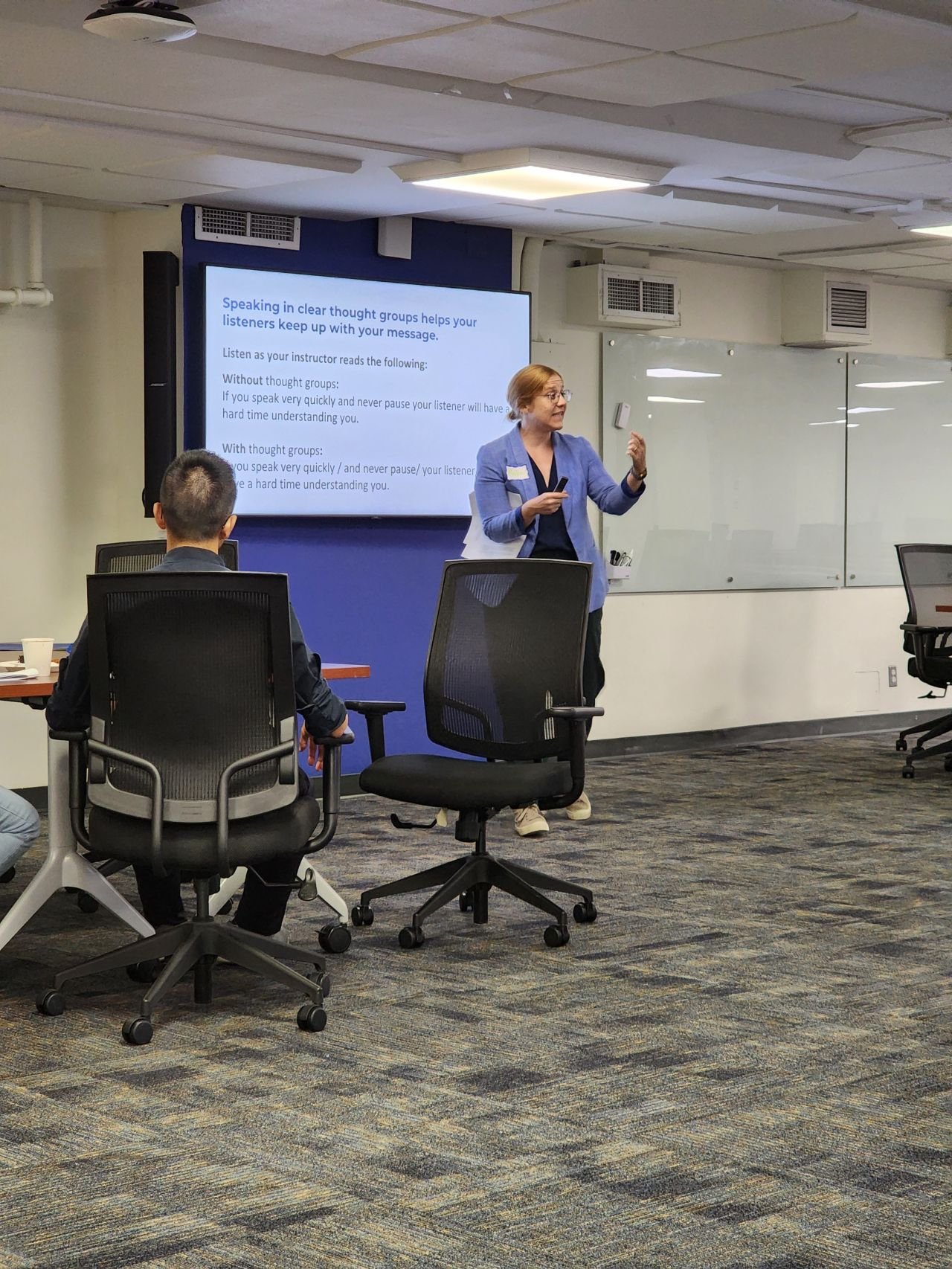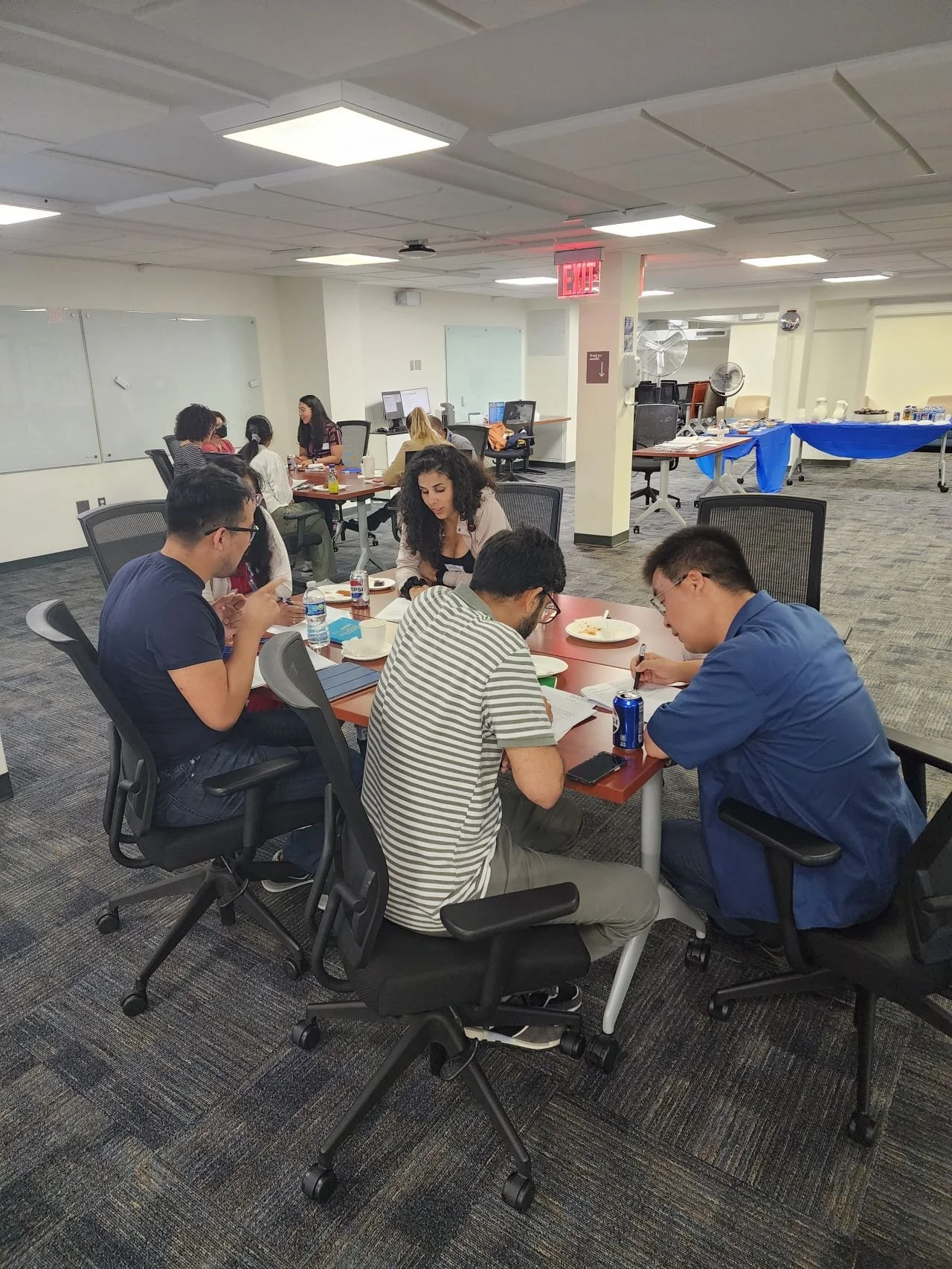Communication Skills for International Academics
Researchers and faculty members who want to improve their communication skills are one of my favorite groups to work with. One of the trainings we offer at language connectED is our four-hour workshop on “Telling Your Research Story,” which helps participants communicate professionally to network well, represent their institutions appropriately, talk about their research in language that people outside of their field can comprehend, and improve their presentations. Participants walk away with, for example, an elevator pitch, analogies for explaining complicated concepts in their work, language strategies for small talking and networking, and a hook to use for presentations or anytime they want to engage listeners when talking about their research. Academics we work with report that they greatly benefit from taking time to focus on how they communicate. And I am fascinated to learn about their research.
Takeaways from Madison, Wisconsin
So when the University of Wisconsin at Madison invited language connectED to conduct a workshop on “Telling Your Research Story” in May, I was excited about working with a new group of academics and seeing Madison. Neither disappointed. Eve Litt and I greatly enjoyed working with two terrific audiences of international graduate students and postdocs and exploring the beautiful campus on Lake Mendota, downtown Madison and trying some new food! And even though we were only there for two days, we packed in a lot of activity with both great discussions about communicating research and some sightseeing. Here are my top takeaways from our trip.
Telling Your Research Story
Whenever we bring together smart researchers focused on improving their communication skills, we always have great discussions. And this group was super-engaged.
How to have a Hook without being Funny
Hooks are important for grabbing the attention of your audience from the very beginning of a presentation. For non-native-speaking presenters, hooks have the added benefit of allowing listeners to get used to their pronunciation before the main content begins. Many workshop participants felt pressure to start their presentations with a joke but worried that humor, tied to culture and language, might fall flat with the audience. Eve and I outlined different ways to craft an effective hook such as telling a personal story or giving a surprising fact or statistic, that don’t rely on being funny. Workshop participants then spent time creating their own hooks that will engage audiences every time they present.
Practicing Elevator Pitches with People Outside your Department
In our interactions with academics, we often meet people who only discuss their research inside their department or lab. We understand. You’re busy. But if you only speak with others as specialized as you, you might not know when you’re using jargon or explaining a complex concept in an unclear way. I’ve noticed that when a group of academics from different departments come together, they are often surprised when their peers--other scientists and researchers--don’t understand them. They assume that their terms are general when in fact they can be very specific.
To help with this challenge, we design activities around talking about research with peers outside of their specialties. In our Madison workshops, I often heard participants asking for clarification from each other around key terms while listening to elevator pitches. We practiced multiple times so that participants can gain more confidence and fluency but also, so they can learn to pitch to multiple audiences. As a bonus, what started as a practice networking exercise, turned into real networking as participants connected with each other and learned more about what they’re doing.















